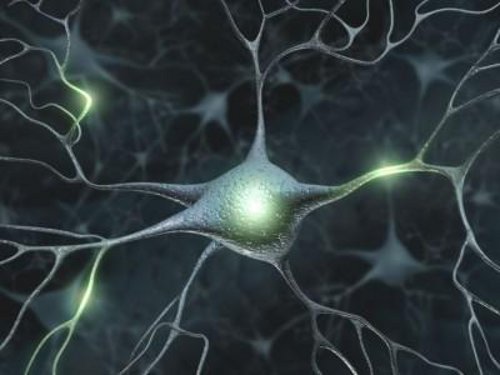9 Early Signs of Hypothyroidism to Watch Out For


Reviewed and approved by the doctor Nelton Abdon Ramos Rojas
Hypothyroidism is a disease that affects the thyroid. This gland regulates your metabolism, secretes multiple hormones, and controls some of your body’s vital processes. This is why knowing the early signs of hypothyroidism is important: getting on top of this condition as soon as possible will help you keep it under control.
It’s a common disorder, though it tends to affect more women than men. It generally happens when thyroid hormone levels go down, making it difficult to achieve a stable, healthy weight.
The primary cause of this are alterations in the body’s inflammatory processes, which lead the cells in the thyroid gland to deteriorate.
Although it develops differently for everyone, diagnosis can also be difficult simple because of the absence of clear symptoms.
This is another reason it’s especially important to be aware of some of the early signs of hypothyroidism. Some of them might seem commonplace, but in some cases they could be an indication that you’re developing the condition.
Read on to learn what they are!
The early signs of hypothyroidism
1. Fatigue

Read more:
6 Dietary Habits that Fight Chronic Fatigue
2. Weight gain
Generally, the main cause of weight gain is a poor diet and unhealthy lifestyle. But if you have good health habits and still notice you’re gaining weight, it could be due to a thyroid problem.
This disease changes your metabolism, slowing it down and preventing you from burning energy correctly.
3. Memory loss

Hormonal imbalances that develop from hypothyroidism can alter your mental abilities and memory.
As hormonal production diminishes, your brain tends to wear out more easily and you can end up developing more severe disorders.
4. High cholesterol
Although doctors don’t typically suspect a thyroid problem is the culprit for high levels of bad cholesterol, it’s important to remember that it is still one of the potential early signs of hypothyroidism.
With this condition your body loses its ability to eliminate cholesterol from the arteries, which eventually causes it to build up.
5. Decreased libido

Plus, thyroid and adrenal gland function are closely related, and these are key to the production and regulation of sex hormones.
6. Changes in mood
One of the side effects of decreased thyroid hormone production is sudden mood swings, which can leave you prone to depression and stress.
While mood swings can be triggered by other factors, don’t rule out hypothyroidism as the possible culprit.
7. Dry skin

The problem can be even worse if you also notice brittle nails, hair loss, and difficulty healing from minor wounds.
8. Slow digestion
Slow digestion or constipation can occur as a result of reduced thyroid hormone production. Because your thyroid gland is responsible for regulating your metabolism, any decrease in its activity can make trouble for your digestive tract.
A slower metabolism can cause the muscles of your digestive tract to weaken as they contract, increasing the tendency of substances to build up in your colon.
You might like:
5 Ways to Put Your Metabolism into High Gear
9. Muscle tension

The hormones that regulate your metabolism can decrease significantly if you have hypothyroidism, weakening your joints and muscles. Depending on how severe it is, you may be able to control the pain with low impact exercises and certain foods that stimulate the thyroid.
Keep in mind that all of these symptoms can manifest differently from person to person. It’s critical to pay attention to all of the warning signs, especially if you experience more than one at the same time.
All cited sources were thoroughly reviewed by our team to ensure their quality, reliability, currency, and validity. The bibliography of this article was considered reliable and of academic or scientific accuracy.
-
Toni, M., Pineda, J., Anda, E., & Galofré, J. C. (2016). Hipertiroidismo. Medicine (Spain), 12(13), 731–741. https://doi.org/10.1016/j.med.2016.06.003
- McAninch, E. A., & Bianco, A. C. (2016). The History and Future of Treatment of Hypothyroidism. Annals of internal medicine, 164(1), 50-6.
https://www.ncbi.nlm.nih.gov/pmc/articles/PMC4980994/ - Kostoglou-Athanassiou, I., & Ntalles, K. (2010). Hypothyroidism – new aspects of an old disease. Hippokratia, 14(2), 82-7.
https://www.ncbi.nlm.nih.gov/pmc/articles/PMC2895281/# - De Leo, S., Lee, S. Y., & Braverman, L. E. (2016). Hyperthyroidism. Lancet (London, England), 388(10047), 906-918.
https://www.ncbi.nlm.nih.gov/pmc/articles/PMC5014602/# - Hyperthyroidism (overactive thyroid) (2018). Mayo Clinic.
https://www.mayoclinic.org/diseases-conditions/hyperthyroidism/symptoms-causes/syc-20373659
This text is provided for informational purposes only and does not replace consultation with a professional. If in doubt, consult your specialist.








